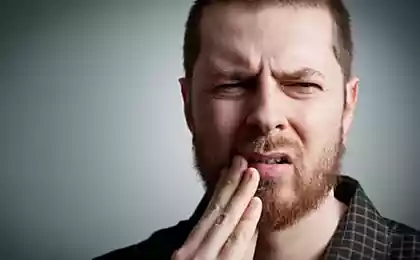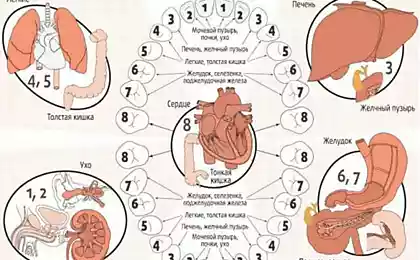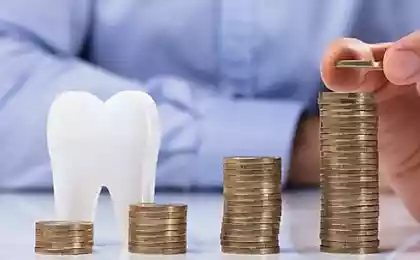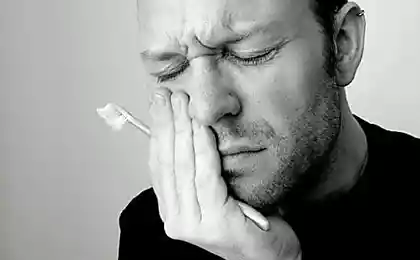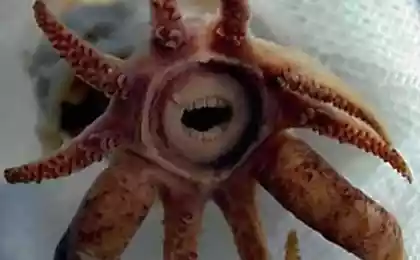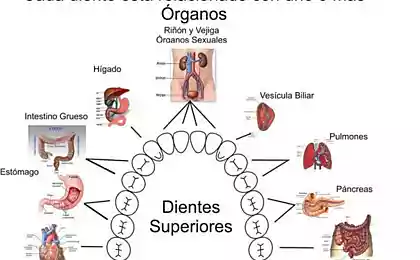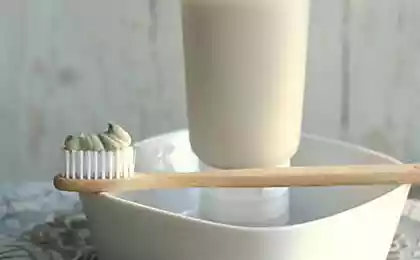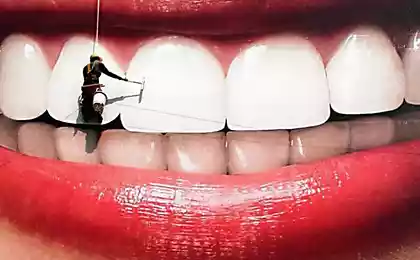506
Grinding the teeth during sleep is not harmless!
So many of us up in the morning with pain in the jaw area. At first, we do not give this fact much, but later appear and other symptoms, such as dizziness, ringing in the ears, headache, etc.
Is bruxism, one of the most common diseases today, which is associated with different ailments. The joke is that most of us simply do not recognize, as inthe CoE occurs at night when we sleep, clutching the teeth.
In this case the dentists, as a rule, make a special tire for the mouth with which to sleep, to prevent these unusual jaw movements.
But why does bruxism? For the prevention and treatment of this unpleasant condition you need to know about its causes.

Bruxism: causes and symptoms
The most common signs of bruxism is when people much jaw clenching in your sleep or grinding your teeth. They do this quite unconsciously. And this unusual position of the jaws for a long time (several hours to several weeks or even months, for example) is a cause of certain consequences.
Just imagine: hard to clench my teeth every night and stay in this position for a few hours, it suggests significant pressure on the muscles of the mouth and the jaw.
By the way, our unconscious actions can be seen and even heard our "bed buddies".
The most common symptoms:
Doctors say that the most common cause of bruxism is stress. However, some experts attribute this condition to our sleep habits.
Therefore, out of sight not to be missed the following: if we are under stress for too long it exhausts our nervous system and does not go unnoticed. As a result, people suffer not only from dehydration but also from problems such as tachycardia, indigestion, back pain, etc.
What will be the consequences of bruxism, if left untreated?
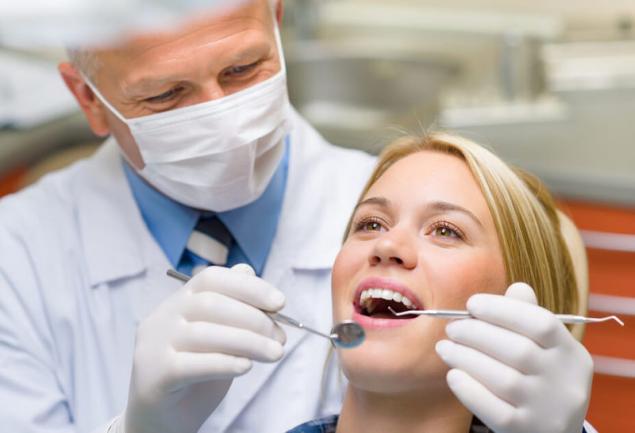
So how do you treat bruxism?
Plastic or silicone tire may be a good solution for bruxism.
Tyres areOne of the most common ways of treating bruxism is to use a special lining on the teeth, the so-called tyre. Dentists recommend it because it protects our teeth from excessive pressure and, as a consequence, grinding.
In addition, thanks to dental the tyres can get rid of unpleasant gnashing (or at least reduce its intensity). In most cases, this becomes an effective tool, but some still can't solve the problem this way, so it is important to take into account the individual characteristics of each patient.
Physical therapy and healthy exercisesin Addition to treatment that can offer us doctors at home would be a good idea to do the following simple exercises. They will help to restore the correct operation of the joint of the jaw, relax the muscles and reduce pain.
We are talking about a series of movements which it is desirable to perform 5 times a day, sitting in a chair with a high back and with arm rests.
Also interesting: How to care for your teeth — the experience of ancestors
How to make natural tooth powder nettle
In conclusion remains to add that the most effective way to avoid bruxism is the ability to manage stress and to cope with their worries. So try to prioritize, be sure to leave yourself time to rest during the day when you can really relax and enjoy their freedom and personal space.
And if you can take a more relaxing lifestyle, then, no doubt, will be able to get rid of such unpleasant problems, as bruxism (and to prevent its occurrence in the future) and doctors for you in this slightly will help. published
P. S. And remember, only by changing their consumption — together we change the world! ©
Join us in Facebook , Vkontakte, Odnoklassniki
Source: steptohealth.ru/bruksizm-eti-sovety-pomogut-vam-spravitsya-s-problemoj/
Is bruxism, one of the most common diseases today, which is associated with different ailments. The joke is that most of us simply do not recognize, as inthe CoE occurs at night when we sleep, clutching the teeth.
In this case the dentists, as a rule, make a special tire for the mouth with which to sleep, to prevent these unusual jaw movements.
But why does bruxism? For the prevention and treatment of this unpleasant condition you need to know about its causes.

Bruxism: causes and symptoms
The most common signs of bruxism is when people much jaw clenching in your sleep or grinding your teeth. They do this quite unconsciously. And this unusual position of the jaws for a long time (several hours to several weeks or even months, for example) is a cause of certain consequences.
Just imagine: hard to clench my teeth every night and stay in this position for a few hours, it suggests significant pressure on the muscles of the mouth and the jaw.
By the way, our unconscious actions can be seen and even heard our "bed buddies".
The most common symptoms:
- Pain in the jaw area
- Headache since morning
- Dizziness and pain in the cervical
- Ear pain or ringing in the ears (annoying noises that make it difficult to concentrate)
- If a person is suffering from bruxism for several years (for example) and not to take any action, it can lead to abrasion of teeth, very conspicuous.
- In the mouth opening of the person can feel a "crunch" (like the click of fingers).
- Some noted special sensitivity when chewing is too cold or too hot food.
- Someone's even lost appetite, they feel extreme fatigue and pain in the jaw area, which prevents proper (careful) chewing of food.
Doctors say that the most common cause of bruxism is stress. However, some experts attribute this condition to our sleep habits.
- Insomnia, for example, can lead to higher level of nervousness and agitation, with the result that the jaws will be compressed and will be subject to unnecessary pressure. This happens quite often.
- Maintaining a very active lifestyle, when a person has to solve several difficult tasks, sometimes under pressure (deadlines, conditions, etc.), also makes the rest "defective".
- Among the factors influencing the occurrence of bruxism, we can distinguish the emotional stress and problems in relationships (with other people, in family, in pairs).
Therefore, out of sight not to be missed the following: if we are under stress for too long it exhausts our nervous system and does not go unnoticed. As a result, people suffer not only from dehydration but also from problems such as tachycardia, indigestion, back pain, etc.
What will be the consequences of bruxism, if left untreated?
- Problems with your teeth (wear, damage enamel, etc.)
- Chronic headaches
- Improper occlusion of the lower jaw
- Problems with digestion (due to insufficiently chewed food)
- The wear and tear of the temporomandibular joint
- Problems with the nervous system, which may result in dizziness, disorientation, etc.

So how do you treat bruxism?
Plastic or silicone tire may be a good solution for bruxism.
Tyres areOne of the most common ways of treating bruxism is to use a special lining on the teeth, the so-called tyre. Dentists recommend it because it protects our teeth from excessive pressure and, as a consequence, grinding.
In addition, thanks to dental the tyres can get rid of unpleasant gnashing (or at least reduce its intensity). In most cases, this becomes an effective tool, but some still can't solve the problem this way, so it is important to take into account the individual characteristics of each patient.
Physical therapy and healthy exercisesin Addition to treatment that can offer us doctors at home would be a good idea to do the following simple exercises. They will help to restore the correct operation of the joint of the jaw, relax the muscles and reduce pain.
We are talking about a series of movements which it is desirable to perform 5 times a day, sitting in a chair with a high back and with arm rests.
- Open your mouth 10 times, keeping this position for 5 seconds and relaxing for 10.
- Move your lower jaw, moving it in one direction and then the other, only very slowly and pausing in each position for 10 seconds. Repeat 10 times.
- Tuck your chin to your chest 10 times. This movement involves a simple cervical curve.
- For dinner try to eat one Apple or a carrot, but carefully and slowly chewing them. So you are a little calm your hyperactive jaw.
- Before you go to bed, prepare yourself an infusion of Linden and sage and add one tablespoon of honey.
- Also before bed is a good idea to practice yoga (at least some exercises).
- Lastly, increase the dose of calcium and magnesium in your diet. These minerals are necessary in order to prevent the abrasion of the teeth, and magnesium is still having a positive impact on the health of our nervous system, this too should not be forgotten.
Also interesting: How to care for your teeth — the experience of ancestors
How to make natural tooth powder nettle
In conclusion remains to add that the most effective way to avoid bruxism is the ability to manage stress and to cope with their worries. So try to prioritize, be sure to leave yourself time to rest during the day when you can really relax and enjoy their freedom and personal space.
And if you can take a more relaxing lifestyle, then, no doubt, will be able to get rid of such unpleasant problems, as bruxism (and to prevent its occurrence in the future) and doctors for you in this slightly will help. published
P. S. And remember, only by changing their consumption — together we change the world! ©
Join us in Facebook , Vkontakte, Odnoklassniki
Source: steptohealth.ru/bruksizm-eti-sovety-pomogut-vam-spravitsya-s-problemoj/
Spaghetti from zucchini with feta cheese and pesto sauce
It is IMPORTANT to know! The digestion time of different foods


